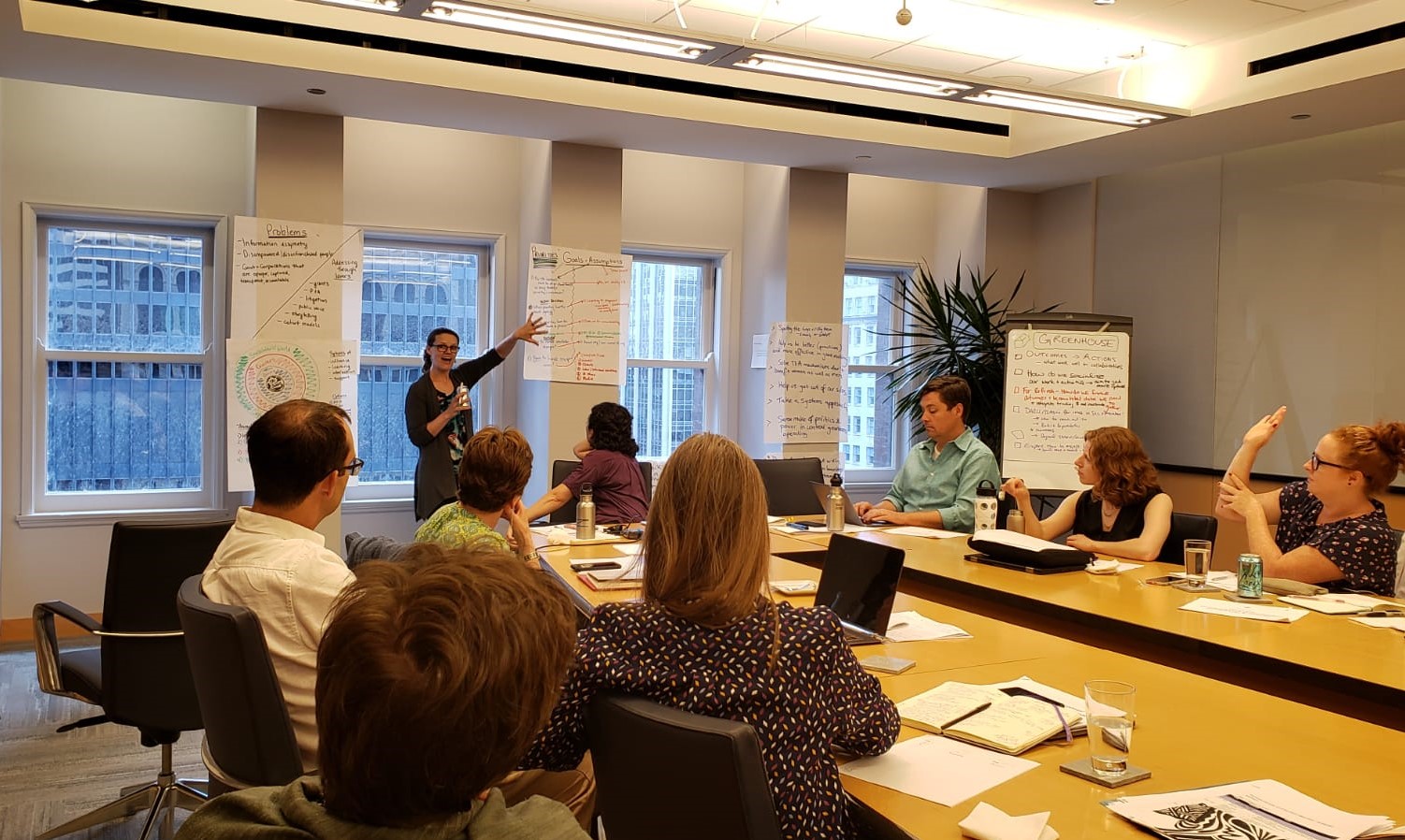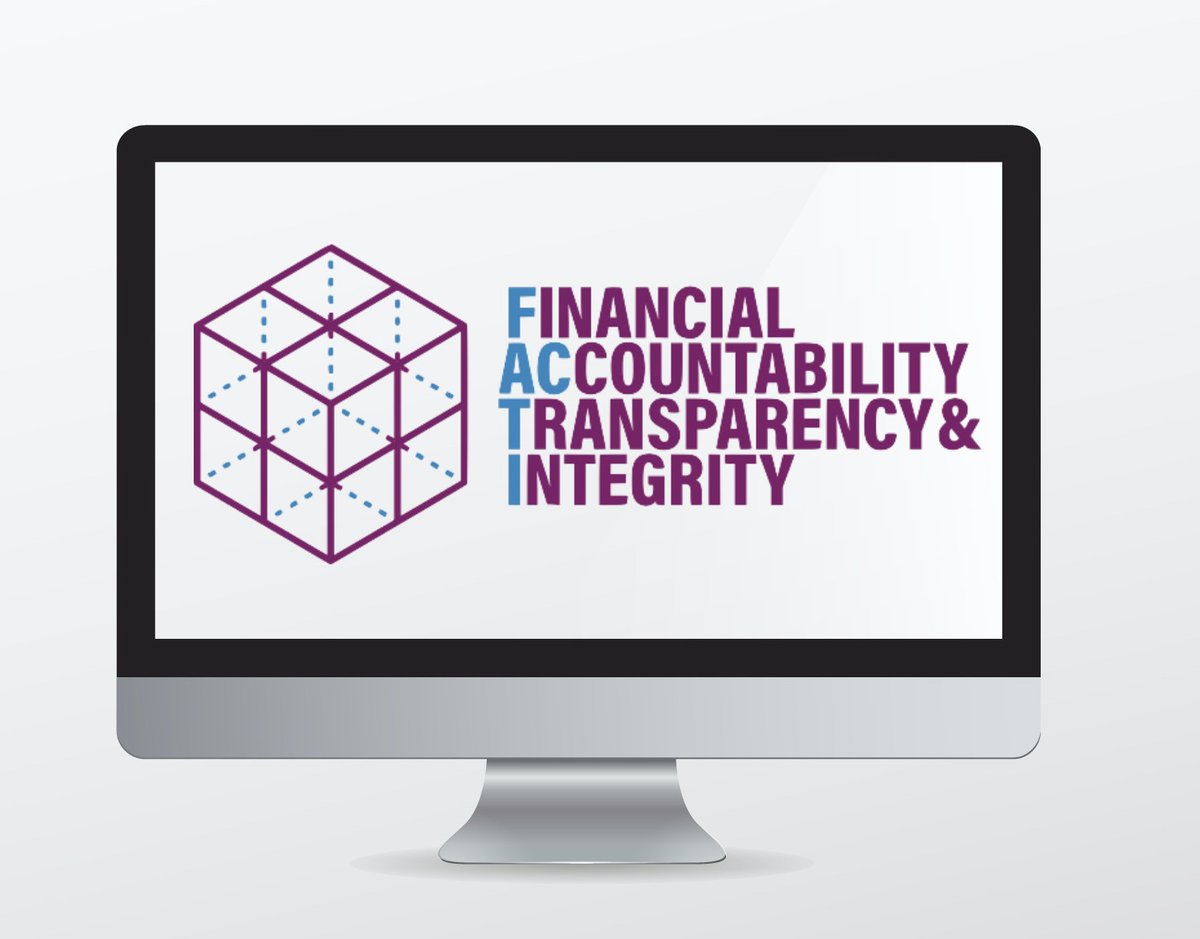Highlight
- Systemic threats vs local resilience
- The shoe has dropped
- Dressed for investor success
- Slow is smooth, and smooth is fast
- Power Dynamics
- TAI SPOTLIGHT: Why #MeToo matters more than ever now

Systemic threats vs local resilience
For the second year in a row, Yemen’s perilous situation means it tops the 2020 Fragile States Index – a culmination of a ten year unravelling of public services, human rights protections and state legitimacy. Now the pandemic adds yet one more threat, hence AWTAD Anti-Corruption Organization appeals on its Facebook pages for all Yemeni authorities and international organizations working in to provide absolute transparency in relation to COVID-19, whether in regards to the number of cases or spending on pandemic plans and programs.
Looking for more inspiration on how citizen-led initiatives can increase health accountability and ensure transparency in coronavirus responses? Hamzat Lawal shares how a new approach dubbed #FollowCOVID19Money is monitoring and reporting discrepancies in the management of COVID-19 funds. Coverage for such efforts will encourage Nanjala Nyabola, who worries that media narratives tend to emphasize African government repression or corruption and fail to showcase the ingenuity and humanity of community response to the pandemic across the continent.
Nonetheless, the crisis is raising threats for many around the globe, be that women social leaders in Colombia, or independent media in Hungary. Ashwanee Budoo worries about the flood of measures that limit freedom of expression against journalists, while ARTICLE 19 reviews access to information obligations that should be maintained, and proposes a list of key information and data sets that should be proactively published by authorities to facilitate the fight against COVID-19 and ensure accountability. At least we can point to one win for access to information campaigners, as ICANN rejected the proposed sale of the .ORG top level domain.
In light of all these developments, Stacy Abrams, US vice-presidential hopeful, takes a step back and makes the case says it is imperative to restore global governance. She worries that “if democracies fail to provide the competent and sure-footed governance that their citizens demand, support for their institutions will decline, and support for the false promises of populist demagogues will grow.” At the heart of good governance is equality, so welcome news that Soros Economic Development Fund is contributing $15million to support women-led business and women’s economic empowerment across Southern and Western Africa.
Certainly, international financial institutions should be pushing to keep civic space open. It is five years now since the World Bank launched its strategic framework for mainstreaming civic engagement into its projects. Visibility has remained low, so glad to see these independent reviews on how the commitment has played out in Pakistan, Nigeria, and Mozambique – under the auspices of the Action for Empowerment and Accountability research project (DFID supported.)
 Don’t miss updates on our member’s contribution to fighting COVID-19
Don’t miss updates on our member’s contribution to fighting COVID-19
The shoe has dropped
As noted in past Weeklies, the next emerging markets debt crisis is well and truly upon us. This time round China is the largest creditor to developing countries, but it could be private debt holders who hold debt restructuring hostage, so Colby Smith and Robin Wigglesworth make a case for channelling debt payments to an international credit facility, which countries could borrow back against for monitored essential spending.

Image Credit: Financial Times
Much Chinese lending has gone to Belt and Road Initiative (BRI) projects in low and middle-income countries and 265 international civil society groups are now calling on the Chinese government to assure that COVID-19 financial relief only save those projects with the highest environmental and governance standards. Meanwhile Jason Tower and Jennifer Staats review China’s commitment to assure that BRI investments would be “open, green, and clean” and argue little has changed on the ground with basic project info still often unavailable and guidance ahead of practice.
However, in one encouraging sign, China’s environment ministry raps state miner Minmetals for renewed environmental failures after its ministry found some affiliates of China Minmetals treated emissions accounting as a “numbers game” and sought creative ways of making their operations look greener than they were.
Dressed for investor success
Of course, these days it is investors prodding companies to improve standards, sometimes more than governments. As the world looks to recover, it seems that environmental, social and governance investing may be further on the rise.
Not many people are buying high fashion when confined to their homes during the pandemic, but hopefully those brands that are transparent will see an early rebound. Fashion Revolution released their annual Fashion Transparency Index, reminding us why public disclosure of information remains one of the most effective levers for systemic change. Discover how your favorite brands perform when it comes to gender equality, working conditions, and environmental practice.
In a further sign of investors emerging as transparency champions, Legal and General Investment Management, the UK’s largest asset manager, is opposing the re-election of the CEO and chairman of Exxon citing a lack of transparency on lobbying by the company and failings on addressing climate risk. While Exxon are not speaking out, interesting that CEOs of other oil giants, are suggesting that we are fast approaching or may already have hit “peak oil” demand. What does it all mean for those fighting for local rights holders? Elisa Peter details a strategic framework for addressing the challenges faced by natural resources activists around the world.
Essential Listening: How nonprofits should approach grant makers post-COVID-19

Photo via: Boston Globe
Listen to MacArthur Foundation President, John Palfrey speak with the host of the Business of Giving, Denver Frederick on balancing short-term urgent needs with long-term sustainability, switching into a fundraising mode in addition to a grant-making one, and how nonprofits should approach grant makers post-COVID-19.
Slow is smooth, and smooth is fast
As countries across the world slowly ease lockdown, John Thornhill unpacks problems faced by western democracies to balance what is possible technologically and politically towards public good in using contact tracing app. His advice? “Slow is smooth, and smooth is fast.”
The Urban Institute highlights the transformative potential of investing in data and tech and Manuela Di Fusco explores the emerging role of real-world data (RWD) and real-world evidence (RWE) — including data derived from mobile technology and wearables — in supporting healthcare decision-making.
Going beyond controlling the pandemic, a new US Government Accountability Office report examines how federal law enforcement uses probabilistic genotyping, latent print, and face recognition algorithms to identify individuals in investigations. A second report is slated to address issues and challenges with law enforcement use of these algorithms.
In a new report Liz David-Barrett, Mihaly Fazekas, Agnes Czibik, Bence Toth, and Isabelle Adam explored some common problems encountered by data scientists when analyzing datasets of government procurement and provide eight recommendations for improving transparency and openness based on their experience of working in India.
Returning to the pandemic, check out the latest examples of countries from Moldova to Ecuador finding ways to harness open contracting in response to health needs. Kaye Sklar also shares some recommendation on how government can reform state procurement to navigate unprecedented crisis. Such measures might help stem corruption risks that are all too obvious to Alexandra Wrage, who argues that there is no stopping COVID-19 unless we find ways to stop corruption. For its part, USAID has identified key issues and approaches to mitigate corruption risks and ensure life-saving pandemic resources reach citizens.
Polling data suggests the British want higher taxes on the wealthy and no bailouts for tax haven companies, while Transparency International’s Elea Gaita argues business bailout must be conditional on responsible tax policy. Rasmus Corlin Christensen has also examined the opportunities and risks for developing countries in the fight against tax havens. What’s the problem with tax havens? John Christensen breaks it down starkly and Nick Shaxson says it is time to think bigger and more broadly about tax justice to make sure measures currently put in place outlast the crisis.
Good to see that not all policy initiatives are on hold amid the pandemic – the European Union is eyeing a new financial crime unit to fight money laundering and is cracking down on dividend tax schemes after national treasuries lose billions to dividend arbitrage trade, plus, a welcome success story for lovers of art and inter-agency cooperation. Read how Interpol and Europol helped to recover over 9000 stolen artifacts and exposed widespread art trafficking networks.
Essential Watching: Virtual global townhall with civil society

Image credit: FACTI Panel
View contributions from civil society organizations to the High Level Panel on International Financial Accountability, Transparency and Integrity for Achieving the 2030 Agenda (FACTI Panel). Key recommendations include strengthening national and regional enforcement of existing anti-corruption provisions, inclusive decision in asset recovery, and ensuring the global tax platform is truly inclusive, transparent and sustainable.
Power dynamics
Results for Development published the Measuring Governance, Advocacy, and Power guide building on an evidence mapping of what exists to measure governance outcomes – a collective effort including TAI among others and supported by TAI member Open Society Foundation (OSF). Check out the guidance note for use, and the first of two blog posts providing more information on the guide and how it can be used.
Don’t miss RTI’s Political Economy Analysis (PEA) results from eight recent studies which offers practical lessons for strengthening evidence-based, adaptive, international development programming. Meanwhile, the Center for Effective Global Action (CEGA) has published research on whether campaign contribution limits curb the influence of money in politics (with evidence from Colombia).
Returning to the power theme, more grant makers are appointing senior-level people to focus exclusively on ways to help share power and promote diversity and inclusion as a new research into organizational culture reveals views are shifting away from culture as an entrenched internal code to culture as a set of practices underpinning day-to-day work that we can change.
Moses Taylor Foundations shares their crisis response strategy and how listening and feedback has helped them moved in the right direction. Learn practical and effective ways to stay in touch with your stakeholders and how to maintain stability during this crisis and the next one. A nonprofit CEO, an events director, and a fundraising consultant specializing in events have also shared how to host an engaging virtual fundraising event and what to consider when hosting a fundraising event during the pandemic.
TAI SPOTLIGHT: Why #MeToo matters more than ever now
Why #MeToo matters more than ever now | Ford Foundation
As the coronavirus crisis intensifies inequality and risk of harassment for workers, learn how National Women’s Law Center (NWLC), a Ford-funded organization is fighting for gender justice and supporting equity litigation and policy.
A Power Grab in Kyrgyzstan | Open Society Foundations
With the coronavirus pandemic dominating global headlines, the government of Kyrgyzstan has made repeated attempts to impose new restrictions on nongovernment organizations. Erkina Ubysheva and Dinara Oshurakunova, partners of the Soros Foundation–Kyrgyzstan, writes on what the proposed law mean for an independent civil society in the post-coronavirus crisis world.
‘Humanity against the virus’: How media reported the UK’s coronavirus vaccine call to action | DFID
Get a summary update on how the UK is leading the international effort to stop coronavirus “No one is safe until we are all safe” as International Development Secretary, Anne-Marie Trevelyan calls for global cooperation and investment to find a coronavirus vaccine.
How the IRC and Sesame Workshop continue to reach refugee children during COVID-19 | MacArthur Foundation
Find out how MacArthur’s 100andChange grantees, International Rescue Committee (IRC) and Sesame Workshop—the nonprofit, educational organization behind Sesame Street, are responding to the needs of refugee families and educating young people in the Middle East during the coronavirus pandemic.
Job Listings
- Job postings at Ford Foundation – Ongoing
Job postings at Luminate – Ongoing
Job postings at Democracy fund – Ongoing - Government Affairs Senior Policy Advisor, International Financial Institutions at Oxfam – Ongoing
- Lead Researcher at ICTD DIGITAX programme – May 24, 2020
(Senior) Research Scientist for AidData Underreported Financial Flows Program – June 12, 2020 - Reset. Information control fellowship – July 1, 2020
Calls/Opportunities
- IBM call for Code Covid-19 Global Challenge – July 31, 2020
Amartya Sen essay contest 2020: Illicit financial flows – August 31, 2020
Call for submissions to SSIR Series: Social change in an era of extreme polarization – Last Thursday of every month until early 2021 - BetterTogether Challenge for innovators – Ongoing
- Free Digital Security Training – Ongoing
Open Road Alliance Charitable Grant and Loan to organizations responding directly to COVID-19 – Ongoing - Marielle Franco Award for feminist essays 2020 – June 16, 2020
- Open call for grants funding on social accountability and transparency in the national education sector – June 19, 2020
- Proposal: Working together to improve governance and anticorruption (Central and Eastern Europe focused) – June 30, 2020
- Reset our future fund for organizations and people using technology, research, and education that help tackle these challenges – July 1, 2020
- Policy and engagement consultant at ICTD DIGITAX programme – May 24, 2020
- Change Leaders in Philanthropy Fellowship – (application opens on June 2020)
- Pulitzer Center Coronavirus news collabortion challenge – Applications will be reviewed on a first-come, rolling basis
Call for proposals: Informality, tax, and the state – Proposals accepted on a rolling basis - Call for suggestions on humanitarian and development data forum agenda – May 2020
- Media integrity contest for South Africans – May 19, 2020
Summer school for journalists open for Russian citizens – May 20, 2020
Call for applications: Intensive anti-corruption training for future leaders – May 20, 2020
Rapid-Response Grants on Covid-19 and the Social Sciences – June 1, 2020
Proposal submission for the 2020 Summer Evaluation Institute – June 7-10, 2020
Calendar
Please double check the websites for these events to make sure they are still happening – many are subject to change due to the spread of coronavirus.
- Transparency International: 19th International Anti-Corruption Conference – (Postponed)
Webinar: International Day Against Homophobia, Transphobia and Biphobia (IDAHOTB) 2020 — May 18-22, 2020 (Online) - Webinar: PWYP Webinar – COVID-19, oil dependency and tools for advocacy – May 19, 2020 (11:00 AM UTC)
- People power in a pandemic: How movements are confronting COVID – May 19, 2020 (10-11:30A EST)
- How to be the “Chief Kindness Officer” in Volatile Times: Compassionate leadership in response to the COVID-19 crisis – May 20, 2020 (11 a.m.-12:30 p.m. PT / 2-3:30 p.m. ET)
- ADB webinar on IDAHOTB 2020: Bridging the LGBTI Inclusion Data Gap – May 20, 2020 (Online)
- 2020 Data Foundation virtual symposium – May 20, 2020 (10:00 AM – 2:30 PM EDT)
- Book Launch: The Nonprofit Sector: A Research Handbook – May 21, 2020 (11:00 am Pacific Time)
- Centering Race Equity and Thinking Strategically in a Long-term Crisis: A Discussion of Organizational Responses to COVID-19 – May 22, 2020 (12:00 PM – 1.30 PM Eastern Time)
- Virtual event: Health versus Wealth? Tax and transparency in the age of Covid-19 – May 28, 2020 (13:00 to 15:30 CUT)
- Awaken for Impact: Engage for Good 2020 virtual conference – May 28, 2020
2020 Media Impact Forum (funder-only gathering) – June 2, 2020 (New York, United States of America) - Civic Power in a Pandemic – June 2, 2020 (5pm – 6:30pm)
- Human Rights Litigation Summer School at Berlin, Germany – June 8-12, 2020
Women and Girls Africa Summit – June 9-12, 2020 (Durban, South Africa)
RightsCon 2020 – June 9-12, 2020 (San Jose, Costa Rica)
2020 Neighborhood Funders Group National Convening (philanthropy support to grassroots power building) – June 29 – July 1, 2020 (Washington, DC)
WE EMpower UN SDG Challenge 2020 – September 18 – 27, 2020 (New York City, United States of America)
The 2020 Journalism Funders Gathering (funder-only gathering) – October 6-7, 2020 (Philadelphia, United States of America)
Humanitarian and Development Data Forum – November 2-4, 2020 (Chambery, France)
International Open Data Conference –November 18-20, 2020 (Nairobi, Kenya).


